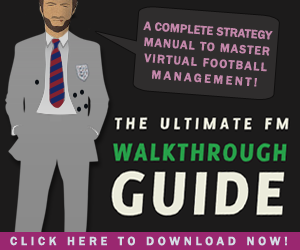-
Recent Articles
3 at the back and the 4-4-2 Diamond
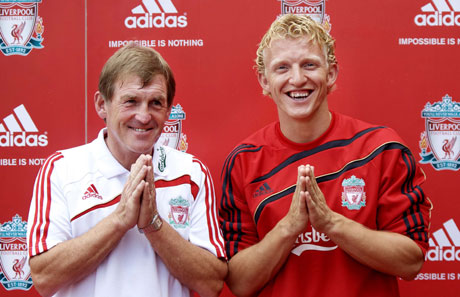 Last week Chelsea v Liverpool became the biggest tactical talking point of the season. Liverpool revived the the 3 man defence that Kenny debuted against Stoke. While with the introduction of Torres for £50m...
Last week Chelsea v Liverpool became the biggest tactical talking point of the season. Liverpool revived the the 3 man defence that Kenny debuted against Stoke. While with the introduction of Torres for £50m...How To Set Up A Back Four
 Last year, I wrote a guide about how to play a simple 4-4-2. One of the major components of that is the back four. In fact, most modern formations build upon four defenders; two full backs and two centre...
Last year, I wrote a guide about how to play a simple 4-4-2. One of the major components of that is the back four. In fact, most modern formations build upon four defenders; two full backs and two centre...Building Your Defence: Full Backs
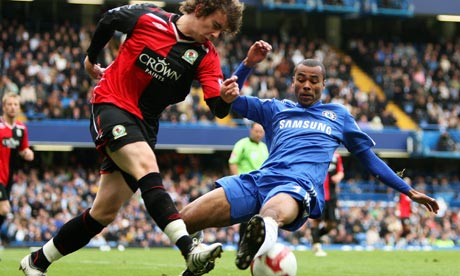 The modern full back is quickly becoming one of the most important players on the team sheet, infact even back in the days of Brian Clough, fat ed' argued that because of the space these players get in the final...
The modern full back is quickly becoming one of the most important players on the team sheet, infact even back in the days of Brian Clough, fat ed' argued that because of the space these players get in the final...False Nine Tactics
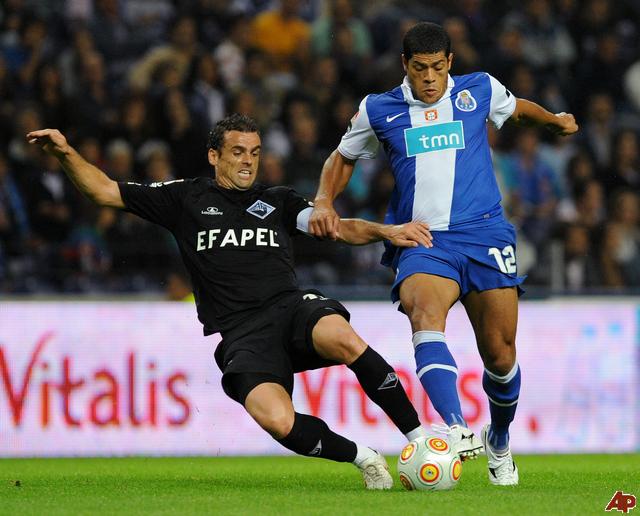 When we think about modern football trends, we think about the fall of the 4-4-2, the introduction of inverted wingers and the rise of the 4-5-1. But there is one other tactical rise that seems to have...
When we think about modern football trends, we think about the fall of the 4-4-2, the introduction of inverted wingers and the rise of the 4-5-1. But there is one other tactical rise that seems to have...An Open Letter To The Football Manager Community
 To view Sports Interactive's response, click here FM-Britain will no longer be producing regular content. Sports Interactive have objected to our content model of charging for annual strategy guides,...
To view Sports Interactive's response, click here FM-Britain will no longer be producing regular content. Sports Interactive have objected to our content model of charging for annual strategy guides,...
JOIN 11,611 READERS - SUBSCRIBE NOW TO OUR FOOTBALL MANAGER NEWSLETTER
Get the latest FM news & best community content delivered directly to your e-mail inbox!
Tactical Bible ’08: Squad Management VI – Tutoring
Written by: Leroy1883
Category: Management
Posted on: April 13, 2007
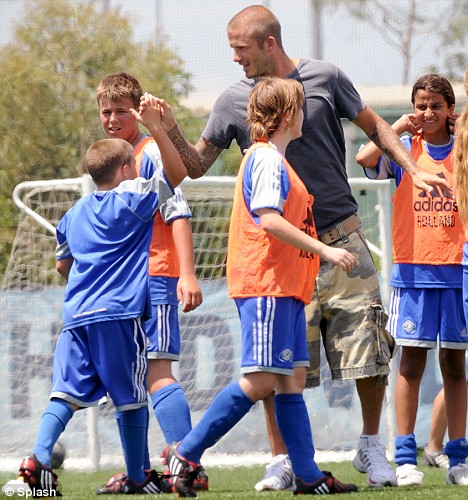
April 13, 2007
Tutoring is one of the new and maybe best features in FM 07. It allows you to educate your youngsters in a completely new and different way, ensuring that you have a youth squad that will continue playing your preferred style of football as well as fitting into the mentality of your squad perfectly.
Since the players have a set potential ability, which will be a random value for youth players in most cases, you cannot turn a player with the talent to play in Conference North into a possible candidate for a national team, but you can certainly help and accelerate their development and indeed turn them into better players.
Why does tutorship improve players when the potential ability is set?
Potential ability is not the only thing which determines a player’s quality. There are other stats that are hidden and looked up by many players using ‘cheat’ tools that determine his quality; like consistency or how well they respond to important matches, as well as his personality. It is obvious that you want to have as many determined players in your squad as possible instead of a bunch of un-ambitious, lethargic followers.
In previous versions of the game, determination was a key value to see if youngsters will reach their full potential sooner or later. I am not sure if this still is valid for FM 07, but certainly it will help a player to perform better in the long run.
This will get more and more important if you start playing long-term games and your scouts will discover several high potential ‘regens’ or ‘newgens’ (those youth players created by the game) every year who have severe flaws in their personality. Of course you would do everything to sign these youngsters, but you certainly would not want to ruin your squad personality within a few years.
As long as these players are sensitive to tutorship, there is absolutely no problem in signing them. With several tutors, or even with the same mentor for several periods, you can turn these youngsters from undetermined to fairly determined or from unambitious to professional. This way I managed to tutor a defender (who had wonderkid status later) from a balanced or fairly professional player to a commanding centre back with high influence, determination and work rate, and he started playing as a 2nd or 3rd captain for the team aged 19.
Helping the youngsters to mature faster
There are certain hints that tutorship can lead to very fast development of youngsters. On several occasions I noticed that potential wonderkids acquired this tag quickly after being tutored, so they must have made a little jump forward with their current ability.
Friendships
Another highly beneficial factor: good relationships within your team. If you find good tutors for your youngsters, they will see both the manager and the tutor as favoured personnel after finishing a successful tutorship. Unfortunately these friendships are only established if the player acquired PPMs but not if his mentality has improved (which does not make mentality tutoring worth less btw.).
Risks
I a few cases, tutorship can end in a clash between tutor and follower, even leading to mutual antipathy. If this happens with multiple squad members, some players may also get disgruntled at the lack of squad harmony. If this problem does not get solved on it’s own, you can loan certain players or offer new contracts which should solve the problem.
Player Preferred Moves (PPM)
Acquiring player preferred moves (PPMs) can add to the player’s quality as well. Some examples: if you have a good free kick taker in your youth squad and a senior player with PPMs like ‘hits free kicks with power’ or ‘tries long range free kicks’, it would be highly beneficial for your youngsters to learn these moves.
Other good examples are ‘dictates tempo’, ‘tries killer balls often’ or ‘curls balls’ for young playmakers. If you have an explosive young striker who might get (and miss…) many one-on-one chances, PPMs like ‘likes to round keeper’, ‘comes deep to receive the ball’, ‘tries to lob the keeper’, ‘places shots’ would be incredibly useful and add to your player’s quality.
Which method of tutorship should I choose?
When you select the player interaction menu of your youngsters, you will see three options:
1 Should see player x would as the ideal role model
2 Should learn from player x the mental approach
3 Should learn from player x
1 Ideal role
This should be reserved for players that have both PPMs and character traits that you want to pass on. The determination, work rate and influence of the tutor should always be higher then the follower’s.
2 Mental approach
A good way if you want to influence the character of the youngster. Even tutors without any PPMs, but high determination and professional character are very well suited. If you have highly-talented youngsters with low determination or ambition, you can assign them to several tutors in a row to completely change their personality.
3 Learn from
This should be used if the follower already has a very good character or even better one then his tutor and you just want him to learn his PPMs.
Multiple tutoring
After circa six months you can assign a new tutor. Sometimes it can be useful to assign several tutors consecutively for increasing the personality or collecting several PPMs of various players, which can be very helpful especially for smaller clubs with less sophisticated tutors.
Why can’t I assign a tutor?
Players ineligible for tutoring: after joining a new club, youngsters often need a few days to be eligible for tutoring.
Unfortunately some youngsters cannot be assigned to a tutor at all, I reckon simply because their ability is already very close to the first team average, since most of them are already first team players according to my experience. Note: this does not depend on their contract status, it is merely based on the current ability, which already may be very high or higher then your squad average, if you managed to sign an outstanding ‘wonderkid’.
A few youngsters are very hostile against any kind of tutoring while others will not pick up any moves at all. This does not have to mean they will develop into bad players, but it is already a little hint about their adaptability. Generally, tutors with PPMs are more likely to be accepted and welcomed, but this does not matter at all if you want the youngsters to increase their mental approach by learning from a very determined player.
Please notes that the possible tutors sometimes have to be in the first team to appear on the tutor list.
Sometimes it takes a little effort to find out their needs: e.g. Schmoller rejected every mental tutor at Dortmund, but finally he loved being tutored by Traoré to learn his free kick skills. With a free kick rating of 20, I am very curious to see the results. By the way, Traoré learned from Dedé originally, so this is a good example of how to keep knowledge and quality in your team.
Combined with good scouting and small investments in young players, I am sure tutoring can bring a lot of fun in long-term games when you see your youth players blossom. In first season it also will help increasing your squad quality in a very short time.
Happy tutoring.
Please note: character do not have to match for successful tutoring. It is quite the opposite, especially in mental tutoring you want your youngsters also to become more determined, harder working, more consistent and professional. Tutoring has the best chance of influencing young players strongly if there is a significant difference in character. This does not influence success or failure of tutorship, even if the game comment suggests this.
Tactical bible credits:
Author: TND, editor: Millie
About The Author: Leroy1883
Download Our Tactical Theorems '10 eBook Absolutely Free

Presenting the most comprehensive tactic design and match strategy guide to the Football Manager series ever created!
Written by FM match engine beta testers, it's 60+ pages of easy-to-read concepts and ideologies for getting your team playing exactly how you want each match! It's been downloaded over 100,000+ times to date!
Find out more information about our tactical eBook
and download Tactical Theorems '10 right now!
Written by FM match engine beta testers, it's 60+ pages of easy-to-read concepts and ideologies for getting your team playing exactly how you want each match! It's been downloaded over 100,000+ times to date!
and download Tactical Theorems '10 right now!
Web discoveries
- UK Casinos Not On Gamstop
- Online Casinos UK
- Best Slot Sites
- Non Gamstop Casinos
- Casino Sites Not On Gamstop
- UK Online Casinos Not On Gamstop
- Slots Not On Gamstop
- Non Gamstop Casino UK
- Non Gamstop Casino UK
- Casino Sites Not On Gamstop
- UK Online Casinos Not On Gamstop
- Casinos Not On Gamstop
- Gambling Sites Not On Gamstop
- Non Gamstop Casinos
- Non Gamstop Casinos
- Non Gamstop Casino UK
- UK Casino Not On Gamstop
- Casino Sites Not On Gamstop
- UK Online Casinos Not On Gamstop
- UK Online Casinos Not On Gamstop
- Brand New Casinos Not Blocked By Gamstop

